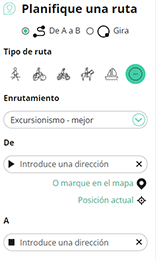Wet grasslands face a triple planetary crisis of climate change, biodiversity loss and pollution, but they are also part of the solution to help address these challenges.
Wetlands are some of the planet’s most important ecosystems. They’re a haven for wildlife, they support 40% of the world’s biodiversity, they filter pollution and they’re important stores of carbon. Wetlands, which include marshes and peatlands, are the unsung heroes of the climate crisis. They store more carbon than any other ecosystem, with peatlands alone storing twice as much as all the world’s forests. Wetland ecosystems also absorb excess water and help prevent floods and drought elsewhere, widely seen as critical to helping communities adapt to a changing climate.
Water-rich habitats, teeming with species, are a key ally in our fight to stop biodiversity loss. Over 140,000 described species – including 55% of all fishes – rely on freshwater habitats for their survival. Freshwater species are important to local ecosystems, provide sources of food and income to humans and are key to flood and erosion control. Yet species in fresh water biotopes are going extinct more rapidly than terrestrial or marine species, with almost a third of all freshwater biodiversity facing extinction due to invasive species, pollution, habitat loss and over-harvesting.
To slow the crisis of pollution, we must protect and restore moist and wet biotopes. Wetlands can improve water quality by removing pollutants from surface waters, through sediment trapping, nutrient removal and detoxification. They act as buffer zones or sponges to absorb, store and re-processes harmful substances.
They clearly hold massive potential for addressing the triple planetary crisis. And raising ambition on wetlands is about raising ambition for people: their health and livelihoods. By improving the management of wetlands, we can deliver food, water security and health benefits estimated at over USD 47 trillion a year.
To meet the goals of the Paris Agreement, we must protect and restore wetlands. Coastal wetlands sequester carbon up to 55 times faster than tropical rainforests. Wetlands contain about 12 per cent of the global carbon pool. When we drain them, we release millions of tons of carbon dioxide equivalent and other substances of concern, such as arsenic. Wetlands also offer increased resilience to extreme events for local communities.
![]() | | Pública | Alemán • Danés • Español • Francés • Italiano • Neerlandés
| | Pública | Alemán • Danés • Español • Francés • Italiano • Neerlandés
Dirección: Watermael-Boitsfort, Brussels, Bélgica
Estadísticas
Selecciona una de las actividades más populares a continuación o afina tu búsqueda
Descubre las rutas más bonitas y populares de la zona, cuidadosamente agrupadas y seleccionadas.
Selecciona una de las categorías más populares a continuación o inspírate en nuestras selecciones
Descubre los lugares de interés más bonitos y populares de la zona, cuidadosamente agrupados y selecciondos.
Con RouteYou, es fácil crear tus propios mapas personalizados. Simplemente traza tu ruta, agrega puntos de ruta o nodos, agrega lugares de interés, lugares para comer y beber, y luego compártelo fácilmente con tu familia y amigos.
Planificador de rutas

<iframe src="https://plugin.routeyou.com/poiviewer/free/?language=es&params.poi.id=8640553&params.language=en" width="100%" height="600" frameborder="0" allowfullscreen></iframe>
© 2006-2026 RouteYou - www.routeyou.com